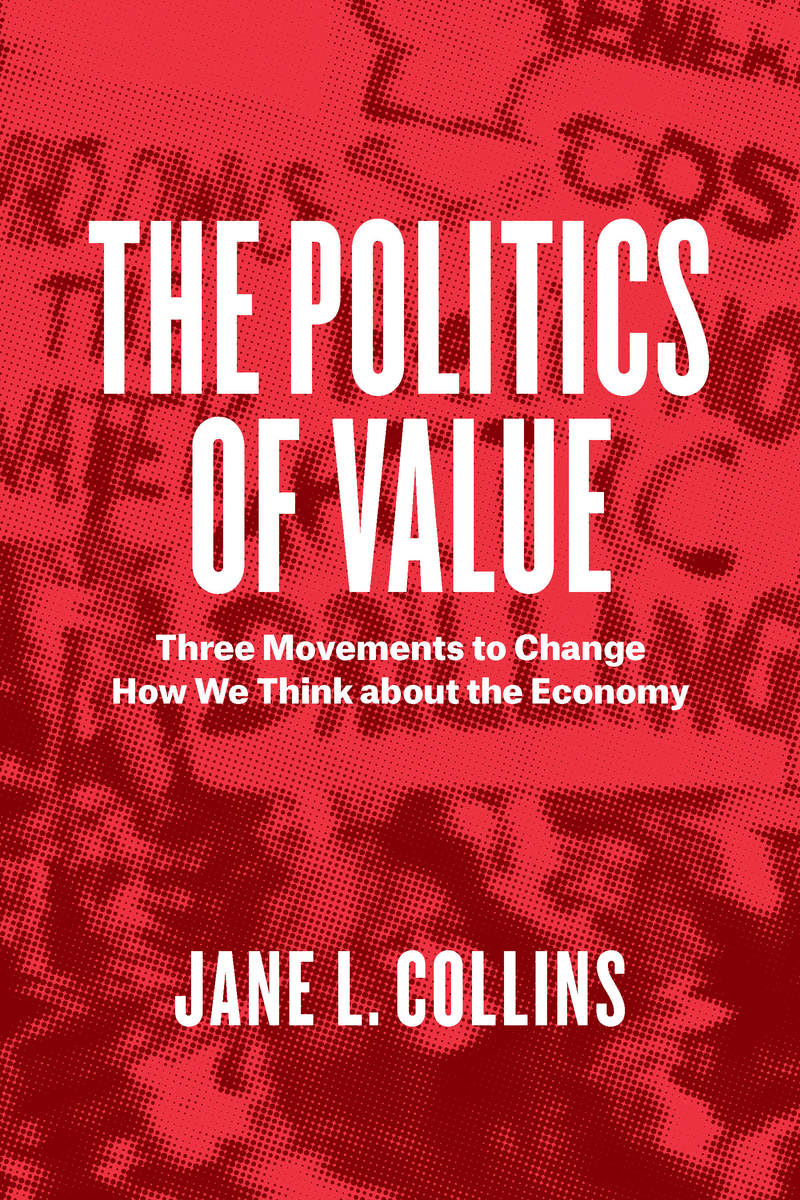The Politics of Value
Three Movements to Change How We Think about the Economy
University of Chicago Press, 2017
Cloth: 978-0-226-44600-4 | Paper: 978-0-226-44614-1 | Electronic: 978-0-226-44628-8
DOI: 10.7208/chicago/9780226446288.001.0001
Cloth: 978-0-226-44600-4 | Paper: 978-0-226-44614-1 | Electronic: 978-0-226-44628-8
DOI: 10.7208/chicago/9780226446288.001.0001
AVAILABLE FROM
University of Chicago Press (cloth, paper, ebook)Amazon Kindle
Apple Books
Barnes & Noble Nook
DeGruyter Multi-User Ebook Program
EBSCO eBooks (formerly NetLibrary)
Google Play
Kobo
University Press Scholarship Online (UPSO)
ABOUT THIS BOOKAUTHOR BIOGRAPHYREVIEWSTABLE OF CONTENTS
ABOUT THIS BOOK
The Great Recession not only shook Americans’ economic faith but also prompted powerful critiques of economic institutions. This timely book explores three movements that gathered force after 2008: the rise of the benefit corporation, which requires social responsibility and eschews share price as the best metric for success; the emergence of a new group, Slow Money, that fosters peer-to-peer investing; and the 2011 Wisconsin protests against a bill restricting the union rights of state workers.
Each case shows how the concrete actions of a group of citizens can prompt us to reflect on what is needed for a just and sustainable economic system. In one case, activists raised questions about the responsibilities of business, in the second about the significance of local economies, and in the third about the contributions of the public sector. Through these movements, Jane L. Collins maps a set of cultural conversations about the types of investments and activities that contribute to the health of the economy. Compelling and persuasive, The Politics of Value offers a new framework for viewing economic value, one grounded in thoughtful assessment of the social division of labor and the relationship of the state and the market to civil society.
Each case shows how the concrete actions of a group of citizens can prompt us to reflect on what is needed for a just and sustainable economic system. In one case, activists raised questions about the responsibilities of business, in the second about the significance of local economies, and in the third about the contributions of the public sector. Through these movements, Jane L. Collins maps a set of cultural conversations about the types of investments and activities that contribute to the health of the economy. Compelling and persuasive, The Politics of Value offers a new framework for viewing economic value, one grounded in thoughtful assessment of the social division of labor and the relationship of the state and the market to civil society.
AUTHOR BIOGRAPHY
Jane L. Collins is professor of community and environmental sociology at the University of Wisconsin–Madison. She is the author, coauthor, or coeditor of several books, including Threads: Gender, Labor, and Power in the Global Apparel Industry, also published by the University of Chicago Press.
REVIEWS
“Collins has provided us with an enlightening survey of innovative ways to structure a capitalist economy.”
— Dean Baker, author of The End of Loser Liberalism: Making Markets Progressive“The Politics of Value is a brilliant contribution to current economic debates. Through a rich and persuasive analysis of three diverse reform movements, Collins reveals ongoing debates about which economic activities are productive and which are unproductive. She makes a powerful case for the radical possibilities of a politics of revaluation.”
— Fred Block, coauthor of The Power of Market Fundamentalism: Karl Polanyi’s Critique“Through the prism of value, Collins shines a bright light on vernacular economics in the United States since 2008. She attends to the possibilities of what is emergent without euphoric embrace: this is not an account of neoliberal logics on the point of collapse. It is engaged political, economic, social, and cultural analysis at its best: grounded, lucid, and timely.”
— Tania Li, author of Land’s End: Capitalist Relations on an Indigenous Frontier"The Politics of Value speaks to how diverse members of the various groups of intellectuals as well as ordinary people attempted to deal with the challenges of the great recession of 2008. Collins reveals that the great recession led many to mount monumental criticisms against the diverse economic institutions of that time....Exploiting her knowledge and understanding of these movements, Collins isolates and thoroughly discusses the prevailing cultural conversations regarding the various types of investment and the degree to which they impacted the ongoing economic health of the people who were directly involved in them. Recommended."
— Choice"The Politics of Value constitutes a fascinating examination of the growing, yet largely understudied, contestation of the dominance of market fundamentalism in American life. . . . there is much to commend about The Politics of Value.”
— American Journal of Sociology